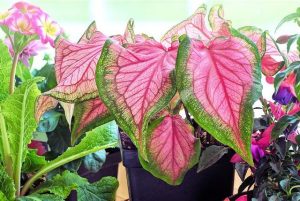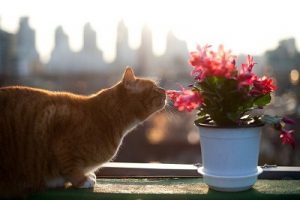Last Updated on May 21, 2023
5 of the most colorful, uniquely shaped, mind-boggling and rarest houseplants you won’t believe actually exist.
Even better, they can be brought into your home for year-round growth.
*This post contains affiliate links. If you choose to purchase any of the products I have recommended, I may receive a commission at no cost to you.
While the qualification of “rarest” houseplants is often subjective, and can differ among varying climates and communities, here is a list of five hard-to-find most unique houseplants everyone should have in their home.
1. Living Stones / Lithops
also known as pebble plants.
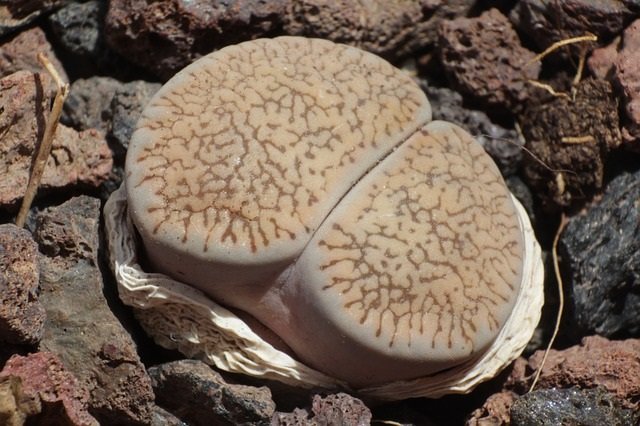
Lithops, or the “living stones” plant, is perhaps one of the weirdest plant varieties up for grabs. In nature, these champions evolved to look like rocks so birds would not eat them. As a result, these plants evolved to a shape that looks to most people like a brain, or rather…. a butt. Out of all the possible houseplants to grow, this one always turns heads and grabs attention!
Only a few people are lucky enough to stumble upon lithops for sale at a plant store, but you can get them online from Amazon, delivered to your door. Don’t be surprised if you buy one of these and your friends find themselves asking, “Is that actually a real plant?”
2. Pitcher Plant / Nepenthes
also known as Monkey Cup.
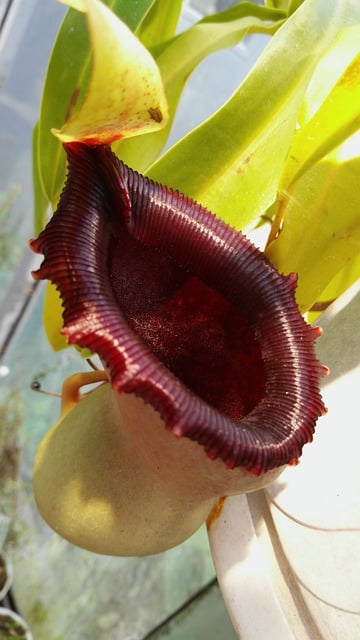
The pitcher plant is a carnivorous plant that grows “pitchers”, which trap insects inside for food. Some communities know this plant as the “monkey cup” because in South Asia monkeys are known to drink the water from pitchers after rainfall.
Nepenthes varieties can be picky when cared for. Luckily, for those who can give them the care they need, they are rewarded with nature’s finest pest control.
Care to know how to care for your carnivorous pitcher plant?
Then watch this YouTube video presented by Summer Rayne Oakes.
3. Frizzle Sizzle / Albuca spiralis
also known as Corkscrew Albuca.
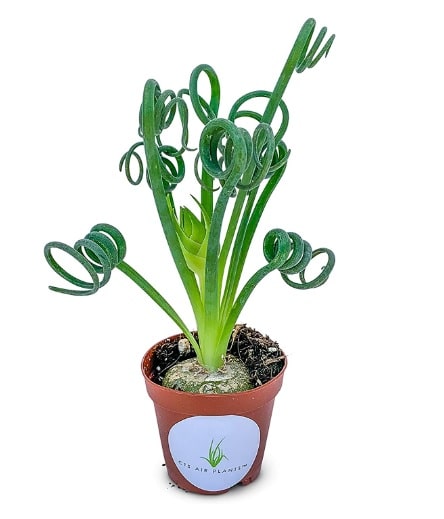
Simply put, the “Frizzle Sizzle” speaks for itself. Native to South Africa, the succulent has corkscrew leaves that look like curled ribbons, and the spring and summer flowers release a fragrance similar to vanilla.
Care for Albuca spiralis is quite simple, but due to the demand for them along with not enough supply, prices have gone up for collectors. All in all, this is a very positive presence to have in your green space.
4. Angel Wing Begonia / Begonia maculata
also known as Sweetheart Hoya or Valentine’s Hoya
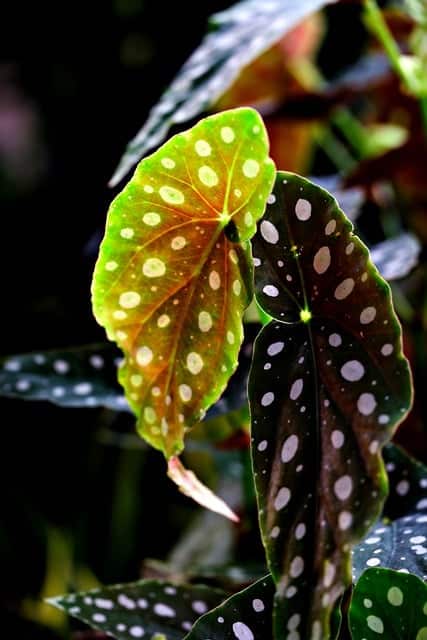
This fan favorite has become so popular, it is easier to find an artificial Begonia maculate than it is to get your hands on a live one!
The Angel Wing Begonia all around does not look like it could ever be created by Mother Nature. The leaves are green with white polka dots, the backs of the leaves are pink, and the plant even flowers in the spring and summer! If you get your hands on this stunning begonia, you will not regret purchasing it!
5. Monstera Albo / Monstera deliciosa ‘Borsigiana albovariegata’
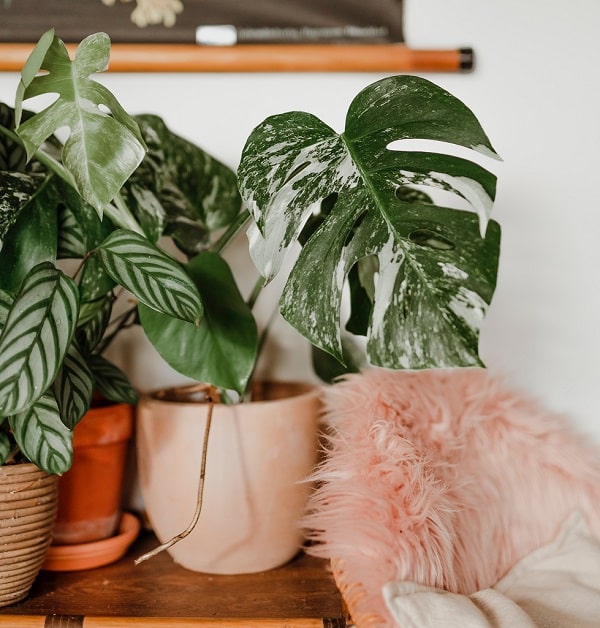
Referred to in local plant communities as the “Monstera albo” or “albino Monstera”, this is one of the most sought out rare houseplants for avid collectors. This plant is a variegated version of the common indoor plant monstera deliciosa, with the same split-leaf foliage in solid green.
The white coloring emerges from either a rare and naturally occurring genetic mutation, or after being manipulated in a science lab.
Either way, any type of variegated or albino plants have always been highly sought after, and this is no exception. Just a small cutting of these start at $150 and up and show no signs of decreasing in popularity any time soon!
Read related:
Final thoughts on rarest houseplants
There you have it – 5 most unique rarest houseplants.
Which of these plants do you already have or want to bring into your indoor jungle (or give to your friend as a gift)?
Do you think it is worth the money to score a rare houseplant, or do you prefer the ones more commonly known?
Let me know what you think in the comments!
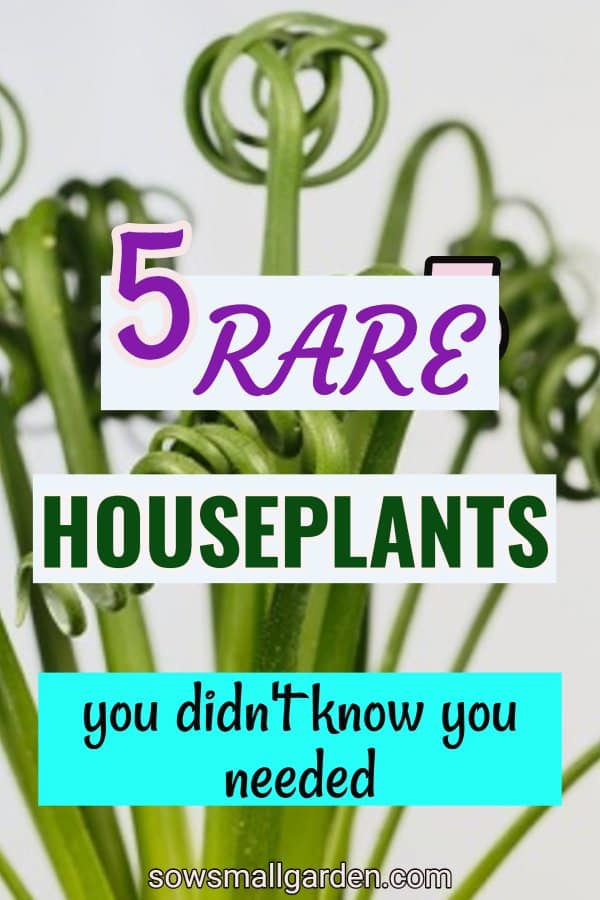
Pin for later reference!


